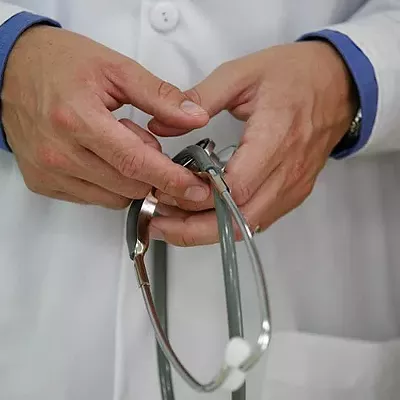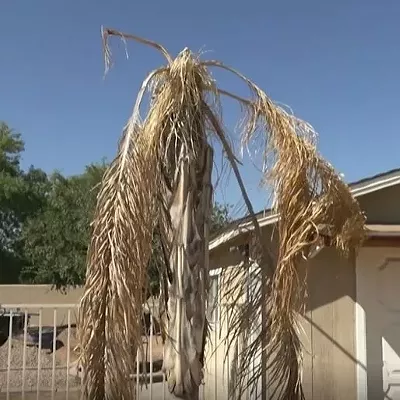Wednesday, December 23, 2020
Southern AZ COVID-19 AM Roundup for Wednesday, Dec. 23: 6,000+ new cases, 54 new deaths; Hospitals facing overload; Pima County under curfew; The vaccine is here
With more than 6,058 new cases reported today, the number of Arizona’s confirmed novel coronavirus cases now stands higher than 473,000 as of Wednesday, Dec. 23, according to the Arizona Department of Health Services. Pima County, which reported 815 new cases today, has seen 62,159 of the state’s 473,273 confirmed cases.
A total of 54 Arizonans have died after contracting COVID-19, including 946 deaths in Pima County, according to the Dec. 23 report.
The number of hospitalized COVID cases statewide continues to soar as the virus has begun to spread more rapidly, putting stress on Arizona’s hospitals and surpassing July peaks. ADHS reported that as of Dec. 22, 3,899 COVID patients were hospitalized in the state. The summer peak of 3,517 hospitalized COVID patients was set on July 13; that number hit a subsequent low of 468 on Sept. 27.
A total of 1,961 people visited emergency rooms on Dec. 22 with COVID symptoms. That number, which hit a new record of 2,166 earlier this month, had previously peaked at 2,008 on July 7; it hit a subsequent low of 653 on Sept. 28.
A total of 972 COVID-19 patients were in intensive care unit beds on Dec. 22, breaking the previous high of 970 on July 13. The low was 114 on Sept. 22.
Healthcare system on the edge of being “overwhelmed”
In a new public health advisory, the Pima County Health Department warned this week that the healthcare system is in danger of becoming overwhelmed within the next two to three weeks if the spread of COVID-19 continues at its current pace.
According to County Health Director Dr. Theresa Cullen, the county is on track to see more coronavirus infections in December than all previous months of the pandemic combined.
The advisory asks for continued adherence to the county’s mandatory mask mandate and 10 p.m. to 5 a.m. curfew.
It also asks to limit all gatherings to less than 10 people and that all businesses reduce their occupancy to 25%.
According to the new advisory, the last week has seen multiple instances of zero ICU bed availability and several days where hospital medical-surgical beds have reached capacity.
Emergency departments and hospitals face staff and critical supply shortages.
The health department is asking residents to stay home and minimize activities that involve contact with people outside of their households, stay physically distanced and practice mask-wearing and frequent sanitization.
“This isn’t just about COVID anymore and whether you think it’s a real problem or not. The patients filling these hospitals are absolutely real and if you have a heart attack, or if you get into a car accident, or your appendix bursts, there is a real possibility that you may not get the timely care you need to save your life if we don’t get control of this virus,” Cullen said. “People are dying yet many of those deaths are preventable if the people of this community stay home, wear their masks and avoid people they don’t live with as much as possible.”
TMC cancels elective surgeries
Tucson Medical Center has canceled elective surgeries through Jan. 4.
A letter from TMC COO Mimi Coomler and CMO Dr. Amy Beiter states that TMC is too crowded with COVID patients to move forward with elective surgeries.
“We have reached the point in the pandemic where the number of COVID patients needing care is exceeding available resources on a daily basis,” they wrote.
The letter also notes that TMC turned away 80 direct admissions in the last week.
For weeks, hospital officials and healthcare experts have been urging the community to stop socializing outside of your immediate household, stay home as much as possible, wear masks and frequently wash hands. They have pleaded with people to cancel holiday celebrations with extended family and friends as the virus has returned to widespread transmission.
Dr. Joe Gerald’s weekly update on COVID’s spread shows that as of Dec. 18, 47% of Arizona’s general ward hospital beds were occupied by COVID patients, a jump of 14% from last week.
“We are now undergoing the great ‘displacement’ such that hospital services are now being rationed so that patients with severe COVID-19 illness are displacing others who have slightly less severe non-COVID medical conditions,” Gerald wrote. “As Covid-19 illness continues to increase, delaying others’ care will become ever more difficult. At some point, hospitals will have to expand their physical capacity. Make no mistake, the COVID-19 crisis is now placing a greater share of Arizonans’ at-risk, not just those unfortunate enough to contract COVID-19.”
“Because cases have been increasing, deaths are also increasing,” he wrote. “Sharper rises are expected over the coming weeks as deaths lag new cases by 14- days and are often only made known weeks later. By Christmas, Arizona will be experiencing >500 deaths per week. However, this toll will not be apparent until mid-January once all deaths are accounted for.”
Gerald said Arizona’s spread was among the worst in the nation.
“For those keeping score, Arizona has the 7th fastest increasing COVID-19 outbreak as measured by Rt.live,” Gerald wrote. “Arizona’s effective viral reproduction number (Rt) is now 1.11. Arizona ranks 4th in the number of daily reported cases at 92.9 per 100,000 residents. We should move ahead of Rhode Island, 93.7 per 100,000 residents, this week.”
Pima County under curfew
Pima County's voluntary curfew is now mandatory.
The Pima County Board of Supervisors voted 3-2 last week to instate a mandatory 10 p.m. to 5 a.m. curfew throughout the county in an attempt to combat Southern Arizona's rising number of coronavirus cases.
Supervisor Steve Christy and outgoing Supervisor Ally Miller, who attended her last board meeting this week, voted against the proposal.
Penalties for a nonessential business found violating curfew range from having their business permit suspended or revoked.
The mandatory curfew will stay in place until coronavirus infection rates drop below 100 per 100,000 people, according to county officials.
The transmission rate in Pima County was 357 people per 100,000 people in the two-week period ending Nov. 29, but Pima County Health Department Director Dr. Theresa Cullen expects that number to be significantly higher for the period ending Dec. 13.
The mandatory curfew comes as through the first two weeks of December, COVID-19 cases in the county reached 13,589—2,554 more cases than reported in all of November. Last week saw 70 coronavirus deaths, according to a memorandum from County Administrator Chuck Huckelberry.
While businesses will now face losing their operating permits if they don't comply with the curfew, it "carries no penalty associated with the individual, as it would be difficult to enforce a curfew against individuals without the cooperation of law enforcement," Huckelberry writes in the memo.
First healthcare workers vaccinated
Banner University Medical Center and Tucson Medical Center began the first round of COVID-19 vaccinations in Pima County last week. While a small number of test vaccinations were injected earlier this week, last Thursday, Dec. 17, marks the official beginning of the Pima County Health Department’s three-phase plan, beginning with frontline workers.
At Banner University’s northside campus, Iris Delfakis, a nurse at the University of Arizona’s Cancer Center, volunteered to receive the first injection.
“I’m all for it,” Delfakis said. “I know there are some against the vaccine, but I think everyone should get it. We’ve never seen something like COVID in our lifetimes.”
According to Rebecca Ruiz-McGill, information specialist for Banner UMC, the medical center needs to “walk before we run,” with vaccine administrations. Because COVID-19 testing involves similar logistics, Banner expects its vaccine process to be in full order within a week or two. By the end of the month, they expect to be administering more than 100 vaccines per day.
Banner’s vaccine station was in its parking garage and saw several hospital staff in its first hour. Among the staff was Dr. Melissa Zukowski, who works in Banner's Department of Emergency Medicine and was prioritized for vaccination because she works in a COVID unit. Those who receive their vaccine will need to receive a second booster injection three weeks after their first.
“I’m emotional with joy. It’s been such a long time we’ve waited for this vaccine,” said Zukowski, who received the injection while holding her daughter’s hand. “To the skeptics who still don’t think this is real – it’s very real. We’ve been going non-stop. People are sick, and people are dying . . . There’s a long road ahead, but this is a glimmer of light.”
However, the pace of vaccinations may slow this week due to a reduction in state Pfizer vaccine allocations, according to Pima County Health Department Logistics Manager Spencer Graves.
The state last week informed Pima County it would receive fewer than 2,000 Pfizer vaccines, a significant decrease from the 10,000 expected, according to a health department press release.
Although 17,000 Moderna COVID-19 vaccines are expected to arrive this week, with 6,000 going to the Banner and TMC distribution centers, those who received the Pfizer vaccine must receive a second dose of it 21 days from the first one in order to be considered completely immunized. The two doses must be administered by the same vaccine brand.
“The Pfizer reduction may slow the pace of vaccinations,” the press release said. “The County and the regional medical community hope to have every medical professional who works with COVID patients vaccinated by the end of December.”
The vaccine prioritization plan includes three phases with the most high-risk individuals receiving the vaccine first, according to county officials.
Phase one of vaccine implementation is divided into three groups: 1A, 1B and 1C. Group 1A will begin receiving vaccines this week.
Group 1B, which includes teachers, law enforcement and other essential service workers, are expected to receive vaccines by March, Cullen said.
Group 1C includes adults older than 65 and those with high-risk medical conditions, which contains nearly 70% of the population and is expected to receive vaccinations by “late spring, early summer,” according to Cullen.
The Pfizer vaccine is given in two doses 21 days apart. The health department said if the second dose is not received on its scheduled time, the first dose will still be valid and the recipient is still fully protected.
Get tested: Pima County has free COVID testing
Pima County offers a number of testing centers around town.
You’ll have a nasal swab test at the Kino Event Center (2805 E. Ajo Way) the Udall Center (7200 E. Tanque Verde Road) and downtown (88 E. Broadway).
The center at the northside Ellie Towne Flowing Wells Community Center, 1660 W. Ruthrauff Road, involves a saliva test designed by ASU.
In addition, the Pima County Health Department, Pima Community College and Arizona State University have partnered to create new drive-thru COVID-19 testing sites at three Pima Community College locations. At the drive-thru sites, COVID-19 testing will be offered through spit samples instead of nasal canal swabs. Each site will conduct testing from 9 a.m. to noon, and registration is required in advance. Only patients 5 years or older can be tested.
Schedule an appointment at these or other pop-up sites at pima.gov/covid19testing.
The University of Arizona’s antibody testing has been opened to all Arizonans as the state attempts to get a handle on how many people have been exposed to COVID-19 but were asymptomatic or otherwise did not get a test while they were ill. To sign up for testing, visit https://covid19antibodytesting.arizona.edu/home.
—with additional reporting from Austin Counts, Jeff Gardner, Nicole Ludden and Mike Truelsen













